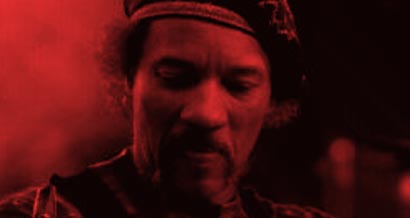|
Charles, the second oldest Neville brother, has the most diverse musical background. His experience on saxophone has included rhythm & blues, funk, jazz, be-bop, popular and even American Indian music. He cites as influences Louis Jordan, Charlie Parker, John Coltrane, Sonny Rollins and Professor Longhair. He is also the only brother that lived away from New Orleans for long periods of time, making places like New York, Memphis and Oregon his home.
Allways exposed to music in the Neville household, Charles started playing saxophone before he reached his teens. At the age of 12, he joined the band at school. He and his brother Art formed a band called Turquoise while teenagers. As did brothers Art and Aaron, Charles also played briefly with the Hawketts. By the time he was 15, he had quit school, and was on the road with Gene Franklin & the Houserockers - part of a traveling variety show.
After his road tour, Charles returned to New Orleans, where he had the good fortune to play in the house band of the Dew Drop Inn. In the 1950's, the Dew Drop was a major venue for nationally known musicians and local New Orleans talent, and the experience left a lasting impression on Charles. From 1954 to 1956, Charles was on the road backing rhythm & blues greats like Johnny Ace, Little Walter, Jimmy Reed, Big Maybelle, James Brown, B.B. King, Bobby Bland and Ray Charles. Not ignoring his hometown, he also played saxophone behind Allen Toussaint, James Booker, Ernie K-Doe and Huey "Piano" Smith.
Perhaps inspired by stories of foreign ports told by their father and uncle, who were both in the merchant marine, Charles and brother Art both joined the Navy. Charles stayed about two years, from 1956 to 1958. Instead of exotic foreign ports, Charles was assigned the duties of aviation mechanic in Memphis. Relying on his skills as a musician, he got a job in the house band of a local club, and became friends with B.B. King.
After his experience in the service, Charles returned to New Orleans where he enrolled in Southern University. Music and the road were too great a enticement, and Charles returned to the touring musicians' life. Besides being exposed to various musical styles and cultures of different cities while on tour, young Charles was introduced to the darker side of life. He resorted to shoplifting to support a heroin habit, and served a couple of short jail terms. Back in Louisiana, he was arrested for possession of two marijuana joints, and given the stiff sentence of five years in the infamous Angola prison. Released after three and one-half years, and disgusted with the racist attitudes in the south, Charles left for New York City.
Restarting his musical career, he played various gigs in New York, and some road trips, backing people like Johnny Taylor, Clarence Carter and O.V. Wright. In 1972, brothers Aaron and Cyril had formed a group called the Soul Machine, and took their act to New York where they joined-up with Charles. The three of them played various places around the city, with Charles on sax, Aaron on piano and Cyril on drums. At one point, they started working on Mardi Gras Indian songs they had learned from their uncle, Big Chief Jolly, and even called themselves the Wild Tchoupitoulas. By 1976, Art, Aaron and Cyril were all in New Orleans, where Big Chief Jolly wanted his nephews to make a record of Mardi Gras Indian songs. Charles returned to work on the album, making it the first time all of the brothers worked together on a project. The Wild Tchoupitoulas album was the beginning of the Neville Brothers as a group.
On his own, Charles has played and recorded with Ramsey McLean & the Survivors, which featured Charles' daughter Charmaine on vocals. In 1994, he recorded and played with the American Indian group called Songcatchers. He also formed his own group called Diversity, which features a mixture of jazz and classical musicians. In 1991, Charles Neville & Diversity released their first recording. Drawing from his experiences at the Dew Drop Inn, Charles conceived and arranged the music for a musical called Shangri-La.
- George C. Gerhold (from the Neville Brother’s web site)
addtional note: besides everything else, besides the striking, direct, rhythmic and plain spoken sax playing Charles brings to the music, he brings this BEAUTIFUL, clear joyous (really) clear spirit to the music, to the day, that makes you feel happy to be making and listening to music, and privileged (really) to get to make music with him. Yeah, Charles. Man, you miss him when he’s not there.
-Kip Hanrahan
|
|
